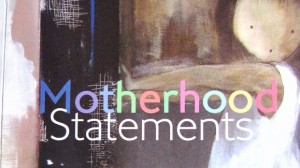 James McGrath has posted a revealing reply to my critique of a single point in his review of Thomas Brodie’s Beyond the Quest for the Historical Jesus: Memoir of a Discovery. Ironically he appears to be unaware that his every point is illustrating the very problem I was trying to address and that is close to the core of the historical Jesus vs Christ myth controversy. (One can hardly call it a two-sided intellectual debate or exchange at this stage.)
James McGrath has posted a revealing reply to my critique of a single point in his review of Thomas Brodie’s Beyond the Quest for the Historical Jesus: Memoir of a Discovery. Ironically he appears to be unaware that his every point is illustrating the very problem I was trying to address and that is close to the core of the historical Jesus vs Christ myth controversy. (One can hardly call it a two-sided intellectual debate or exchange at this stage.)
I concluded with the message that McGrath “brings a hostile intent to every page” he reads by a mythicist.
In my critique of a single point in McGrath’s review of Brodie’s memoir I pointed out that McGrath unfortunately failed to establish his claim with any factual reference to what Brodie had written. Indeed, when one reads the pages that McGrath cited as support for his view, one finds that Brodie’s words belie McGrath’s claims. How is this possible?
McGrath explains
McGrath explains. He draws on his own personal experience and personal weaknesses and reasons that these should guide his and our reading of Brodie’s book. It’s called projection.
McGrath’s explicit reliance upon his own experience while at the same time dismissing and/or ignoring anything Brodie says to the contrary is a classic case of this all too common bit of the human condition. McGrath fails to see that his own experience is irrelevant unless he can directly relate it to the evidence Brodie states — not to “impressions” McGrath gets from putting unspecified inferences he brings together from various pages.
The point I was making in that section of my review was about the fact that Brodie drew a conclusion about whether Jesus was a historical figure even before learning how to do scholarship in the appropriate manner. I can tell you that I myself had all sorts of ideas that I thought were brilliant, publication-worthy insights as an undergraduate. Few withstood the testing to which I subjected them in my ongoing studies.
No, Brodie did not come to the conclusion that Jesus was not historical before “learning how to do scholarship”. McGrath originally said that that was his impression and now he is saying that this was “a fact” he was trying to point out. I have been discussing Brodie’s book in detail and it is clear that McGrath has nothing but his own “impression” — no data — to support what he now says is a “fact” about Brodie.
But it does not stop there. In his original review McGrath invites his readers to share in this projection. He does this by pointing to general motherhood statements that most others can relate to from their student days and invites readers to think of Brodie’s argument through this perspective.
The book can serve as a warning to young scholars to be open to criticism and feedback (and to more established scholars to provide honest and clear feedback, since I found myself wondering whether anyone actually told Brodie that he was using dubious methods and criteria to produce dubious results). Early in our years of reading, we regularly find ourselves thinking that we have a decisive insight. More often than not, further research shows we were wrong. Being unwilling to change one’s mind in light of evidence, and consider the possibility that we were not as insightful as we thought, will undermine one’s effort to be a productive scholar, and perhaps interfere with the attempt to become a scholar at all. Brodie’s memoir illustrates this amply, and I am grateful that he put it in writing and shared it with others . . .
 Those last sentences are all motherhood stuff. No-one will argue with them. The point is, though, that they are not related to any actual data, any real “facts”, written by Brodie — only vague impressions of McGrath that he reached in defiance of the facts written (at least in the one point I critiqued).
Those last sentences are all motherhood stuff. No-one will argue with them. The point is, though, that they are not related to any actual data, any real “facts”, written by Brodie — only vague impressions of McGrath that he reached in defiance of the facts written (at least in the one point I critiqued).
Now let me be quick to add that I acknowledge that “projection” is not always or necessarily an entirely bad thing. It’s part of our human package and baggage connected with our ability to empathize and even sympathize with our fellow mammals.
Obviously (it should be obvious, yes?) projection must always be tested. And that is where McGrath’s criticism fails. He stops with projection and ignores the specific and detailed evidence that contradicts his assumptions. Or I should say he doesn’t quite “ignore” Brodie’s words, but he does make an effort (no doubt sincerely — in sincere belief that his own experience and wisdom is the measure of others) to deflect readers’ minds away from that evidence and to reinterpret the evidence as Brodie’s delusions.
In this particular instance, the evidence McGrath ignored and that even flatly contradicts one of his “impressions” is on pages 32, 35, 40 and 42 as I demonstrated in my critique. That McGrath simply ignores — or says he could somehow infer Brodie meant otherwise by reflecting on what he said a few pages earlier without telling the reader specifically what he is referring to — that detail makes my point.
Unfortunately, this means Brodie has no way to win. The rules are stacked against him. If he attempts to point out that not every person who agrees with the conventional wisdom is a nutter by upholding certain facts he perceives to be important, then those facts will always be dismissed without reflection or examination. Projection will always brush them aside or reinterpret them as delusional fantasies.
What anyone challenged by Brodie’s conclusions should do, of course, is first of all attempt to understand Brodie’s argument on its own terms and take particular note of the details he believes were significant in his own intellectual odyssey. That does not mean swallowing Brodie’s claims uncritically. But critical analysis on the basis of mere projection is not critical analysis at all.
It is not critical analysis to declare, on the basis of projection, that Brodie is deluding himself when he gives his own account of how he came to his views. That’s a cop-out to avoid dealing critically with Brodie’s words.
The core of all this?
It’s all part of what lies at the core of the Historical Jesus vs Christ Myth controversy. To most theologians who are outspoken on the question, anyone who holds a mythicist view is beset by the same mental flaws that they (the outspoken theologians) have seen in themselves, particularly in their earlier days when they were young-earth creationists (as opposed to now being more sophisticated old-earth creationists) or simply flirting with any whacky idea that many of us do when young. So the controversy is not an exchange of arguments. The opposition to mythicism comes down to personal attacks on motives, abilities and character.
Now a critic of mythicism like McGrath will not agree with that. He will insist he has dealt with mythicist arguments more than most of his peers have. He fails to understand that simply repeating the conventional wisdom is not the same thing as engaging with, or answering, mythicist arguments. Merely saying that the mythicist argument is not accepted by his peers, or that his peers have a different understanding, and therefore, by the standards and assumptions of the conventional arguments the mythicist view is ludicrous and ignorant, is not engaging in a discussion.
McGrath seems at some level to be aware of this since he has explicitly said once or twice that he refuses to repeat or explain a mythicist argument he is criticising for fear of giving it respectability. That is, he has said he will not seriously engage with mythicism (serious engagement by definition means you acknowledge and set out clearly and accurately what you are engaging with).
McGrath has said he sincerely wants to engage with other views, but he has also said that if he finds a mythicist argument that really does sound plausible that there must be some joke there.

That such a person is seen fit to discuss academic freedom in relation to mythicism is, as I said earlier, an Orwellian scenario. Academic freedom is limited to “right-thinking” — only those who are assimilated by the due social and educational processes are admitted to the academy. Joseph Hoffmann has admitted that those who do question certain fundamentals of the conventional wisdom know that to survive they must keep quiet. By the Ehrmans and the McGraths exercising their mockery of certain views without engaging them in a serious intellectual manner are all part of the right/wrong-thinking gateway. Of course there are many critical questions and views that are challenged. But the range of those views and the range of alternatives allowed are pre-determined.
That’s not a conspiracy theory. That’s all basic to how wide swathes of our educational processes work. Many students of educational studies and sociology and organisational culture and the media learn that. We could see it so easily when we saw the ostracising of dissidents in the Soviet Union. It’s harder to see it in ourselves and our more subtle ways of ostracising our dissidents.
Same with Doherty
I said that McGrath committed the same failings in the way he addressed Earl Doherty’s work. McGrath hand-waves readers to look at the whole discussion somewhere on his blog in a manner that says, “Look at all that and just be revolted by it all the way I am.” I’d rather look at the detail, the facts, where the devils live. So here are some explanations backing up my claims about McGrath’s failure to address (and worse) Doherty’s arguments. They are chosen as I found them easiest to find — there are many more:
McGrath claims Doherty did not consider alternative interpretations of the Ignatian evidence;
McGrath simply brushes aside Doherty’s arguments relating to Judaism and Hellenism on the grounds that mainstream scholars don’t use the evidence to argue anything that Doherty does. The same link demonstrates that McGrath was flat wrong when he accused Doherty of “for most part lumping all the epistles together.)
McGrath argues that Doherty “seems” to make arguments he nowhere makes and where at times he argues something very different — much the way he now says he has “the impression” Brodie is saying something anyone else can see he is not. (In a later post this “impression” will become “a fact”.) One more of many such examples where McGrath waxes amazingly projecting a raft of arguments to Doherty that Doherty nowhere makes, and demonstrates an inability to even summarize Doherty’s argument that he is attempting to rebut, is in my “not paying close attention” post.
(Most of these posts are not just my own view — I am quoting McGrath and Doherty in detail and setting their respective statements side by side.)
In my “what McGrath forgot” post I demonstrate that McGrath rejects and simply ignores any discussion or criticism of Doherty’s argument about the Pauline letters entirely on the grounds that mainstream scholars have a different interpretation.
I need to track down again the post or comment where McGrath equated a plausible mythicist argument with being some sort of joke. (If anyone can help with that reference it would be fantastic. We have lots to do now with fixing up lots of stuff and links on this blog.)
If you enjoyed this post, please consider donating to Vridar. Thanks!

